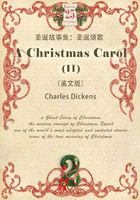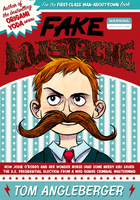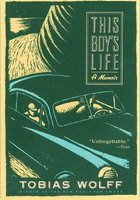Samuel Beckett wrote the French-language novel Malone meurt between November 1947 and May 1948, at the height of a period of intense creative activity during which he also wrote the other novels of what has come to be known as the Trilogy – Molloy and L'Innomable – as well as En attendant Godot, the play which first brought him international recognition. Beckett published his own translation of Malone meurt as Malone Dies with his American publisher, Grove Press, in 1956. This was subsequently published in the UK by John Calder in 1958, before appearing as the middle instalment of a trilogy in a Grove edition of the same year (with the subtitle Three Novels by Samuel Beckett), in an Olympia Press edition of 1959, and in a Calder edition also of 1959. Excerpts of Malone Dies appeared in periodical form in 1950 and 1956 (see Appendix), and a Penguin edition of the novel was published in 1962.
Malone Dies emerges from what Beckett called a 'frenzy of writing',1 during which he produced works that not only defined his writing career but also shaped the development of post-war prose and drama. Given such productivity, it is perhaps ironic that this novel traces and performs the slow death not only of its writer-protagonist Malone but also of the possibility of narrative fiction itself. The novel may have been written in a burst of creativity, but what it celebrates is Malone's destructive relish both in his own bodily decomposition and in that of the fictional worlds he creates. A decrepit relict, confined to his sick bed in an institution of some kind, Malone distracts himself from his own dying by writing stories in an exercise book he has salvaged in his bed, like a twentieth-century Crusoe. He declares his intention at the outset to write 'three stories', one about a 'man and a woman', one about an 'animal', or perhaps a 'bird', and finally one about a 'thing', 'a stone probably' (p. 6). But Malone's stories tend to merge, becoming confused not only with one another but also with the story that Malone tells of his own existence, or what he calls his 'present state', as he lies dying.
The first of Malone's stories tells of a boy named Saposcat, of his parents' anxieties about his future, and of his strange relations with a local farming family called the Lamberts. This gives way to an account of a vagrant named Macmann, and finally to the story of Macmann's incarceration in an asylum named the 'House of Saint John of God'. Malone's story-telling produces a series of wonderfully vivid, compelling narrative fragments: Sapo's blankly reflective evenings in the gloaming at the Lamberts' farm; Mrs Lambert's fits of despair at the 'crass tenacity of life' (p. 43) as she prepares the lentils for the family's dinner; Big Lambert's stoical burying of his loyal donkey; the doomed geriatric love affair between Macmann and his nurse, Moll; the Saint John of God inmates' calamitous trip by boat to the 'island' to see the 'Druid remains'. These episodes or vignettes are written with extraordinary deftness and comic lightness of touch, involving the reader despite their lack of consequence. Malone sets narrative in motion and summons fictional scenarios as effortlessly as Picasso's line drawings summon a camel or a horse.
But just as the air in Malone's room seems to him lacking in oxygen, so the conditions required for narrative to thrive seem here to be lacking. No sooner does a story get going than it grinds to a halt. Malone's characters freeze in mid-gesture, as he interrupts his story-telling to comment on the paucity of his fictions. 'Sapo loved nature, took an interest', Malone will declaim, in narrative mode, before breaking off to exclaim that 'this is awful' (p. 15), that the stories provoke a 'mortal tedium' (p. 44), that he 'can't do it' (p. 21). One of the only plot lines to develop steadily across the novel is the erosion of Malone's capacity to follow his own plot for the writing of his three stories. The fabric of his story-telling becomes increasingly threadbare, and his characters develop a more pronounced resemblance to himself, as narrative gives way to a fragmentary monologue in which even the fiction of Malone's own presence in his room, writing stories in an exercise book with a dwindling pencil, starts to fail. The death of Malone, it might be inferred, is also the death of characterisation, the death of plot. But as narrative dwindles, it opens onto and explores the predicament of a voice that continues to speak, haltingly, even while having no story left to tell.
It is possible to read the trilogy as staging, in miniature, the trajectory that Beckett's work would follow more generally, from the 1930s to the 1980s. Molloy begins with the 'premonition' that his narrative will be the first of three stories, ending with the end of story-telling. 'This time,' he writes, 'then once more I think, then perhaps a last time, then I think it'll be over.' It is easy to think of Malone as overseeing the second of these 'times': inheriting a shabby, malfunctioning narrative apparatus from Molloy, he disimproves it, before handing on to his apparent successor, the narrator of The Unnamable, a form of prose that survives only to witness the disappearance of its own conditions of possibility. With Malone's 'demise', Malone predicts, 'it will be all over with the Murphys, Merciers, Molloys, Morans and Malones' (p. 63), leaving the narrator of The Unnamable, if such a figure can be said to exist, to manage as best he can without character, plot, situation or any other of the trappings of the novel form. After the broken colours of Malone's fragmentary stories, Beckett's writing passes, via the agonised narrative wail of The Unnamable, to the fizzles and scraps of prose that make up his very short fictions of the 1960s and 1970s.
To read Malone Dies exclusively in terms of this trajectory, however, would be to make light of the singularity of Beckett's novel. The question of the relation between the novel as a stand-alone piece, and as the central episode in a larger work, is indeed one that has shadowed its reception. Since the incorporation in the late 1950s of Malone Dies (by Grove, Calder and Olympia) as the second novel of a 'trilogy', the suggestion made by Malone himself that his narrative might be thought of as part of a larger work, and of a larger movement in Beckett's oeuvre, has been given concrete form. The novel's re-publication as the middle instalment of the trilogy has made it difficult to resist the sense that Malone is a middle man, a link in the chain that leads Beckett towards the impasse at the end of The Unnamable and determines in a sense the remainder of his writing career. There is evidence to suggest that Beckett himself thought of Malone in this way. In a letter written to George Reavey on 14 May 1947, just as he was entering his 'frenzy of writing', Beckett suggested that his works might be thought of not as individual pieces but as elements within a 'series'. In reference to his earlier novel Watt (at this stage still unpublished), Beckett writes: 'It is an unsatisfactory book, written in dribs and drabs, first on the run, then of an evening after the clod-hopping, during the occupation. But it has its place in the series, as will perhaps appear in time.'2 And just over a year later, on 8 July 1948, shortly after completing Malone Dies, he wrote, again to Reavey, to suggest that Malone Dies too should be thought of as part of the 'series', the motivating principle of which would perhaps appear in time. 'I am now retyping,' Beckett writes, 'for rejection by the publishers, Malone Meurt, the last I hope of the series Murphy, Watt, Mercier and Camier, Molloy, not to mention the 4 Nouvelles & Eleuthéria.'3
If this suggests that Beckett thought of his narrator as one of a series, however, he also felt strongly that Malone Dies was one of a kind. In correspondence with both his American and British publishers, Barney Rosset and John Calder respectively, Beckett was adamant that the self-sufficiency of Malone Dies be preserved. He wrote to Calder on 6 January 1958, in response to Calder's request to describe the novels as a trilogy on the title page, 'Not "Trilogy", I beseech you, just the three titles and nothing else', and to Barney Rosset in May 1969 that he 'couldn't bear the thought of "trilogy"'.4
This tension, in Beckett's correspondence, between the novel's independence and its interdependence can be found within Malone Dies itself, in the speaker's ambivalence about his own identity. Malone thinks of himself in part as one of the 'Murphys, Merciers, Molloys, Morans and Malones' for whom things will soon be 'all over', and throughout the novel he acknowledges his peculiar status as a kind of avatar, a form among other forms adopted temporarily by a narrating agency, rather than an autonomous subject. He describes feeling invaded by a larger narrative force – 'for as long as I can remember the sensation is familiar of a blind and tired hand delving feebly in my particles' (p. 51) – as if animated by a puppeteer. One of Malone's greatest desires is to give way to this occupying force, to yield his passing individuality to this narrative presence. Equally, Malone's narrative is driven by a preoccupation with his own singularity, so that the desire to 'be another' (p. 20), as he puts it, is balanced against an equal desire to be rid of the invasive agency which is responsible for Molloy who preceded him, and for the unnamable narrator who will follow.
One index of Malone's struggle for singularity, and for independence from the 'series' of which he is a part, is his relationship with his 'exercise-book', with the manuscript in which he composes his narrative and with which he has an unusually proprietorial relationship. He is happy to accept that the bed is not his, nor the dishes from which he eats, nor the pots into which he excretes, nor the cupboard in his room nor the blankets on his bed, nor even, when it comes to it, his own body, but he never accepts that the exercise-book is other than his. 'Nothing of all that is mine,' he says; 'But the exercise-book is mine, I can't explain' (p. 75). His notebook, and the words of which he is made, are more surely a mark of his singularity than any other of his formal properties, and in asserting this ownership he enters into a kind of struggle for editorial control with the narrative force that possesses him, the 'hand' that he can feel 'plunged in me up to the elbow', and that 'clutches, ransacks, ravages, avenging its failure to scatter me with one sweep' (p. 51). Malone dwells intently on the manual process by which he writes ('My little finger glides before my pencil across the page', p. 33), the physical details of the notebook itself, the layout of words – and in so doing he seeks to appropriate the manuscript, to wrest control from the author of that 'series' which is so erosive of his own identity. 'The first pages', he writes, 'are covered with ciphers and other symbols and diagrams, with here and there a brief phrase. Calculations, I reckon. They seem to stop suddenly, prematurely at all events. As though discouraged. Perhaps it is astronomy, or astrology. I did not look closely. I drew a line, no, I did not even draw a line, and I wrote, Soon I shall be quite dead at last, and so on' (p. 35). It is difficult to resist the thought that Malone is describing in part the notebook which contains the opening of Beckett's draft of Malone meurt, and which interrupts the manuscript of Watt, where that earlier novel had stopped, 'as though discouraged' (p. 35).
Malone's ever-impending death may release Beckett from some of the coils of fiction, allowing the voice that speaks to pass into what Malone calls the 'blessedness of absence' (p. 49). But in asserting his ownership of his own conditions of production, Malone refuses to allow himself to be merely a 'fading form among fading forms'. If Beckett's novels are episodes, then Malone reminds us they are so by virtue of their fierce singularity and the assertion of their own uniqueness.
*
By allowing the novel to stand its own ground for the first time since the Penguin edition of 1962 – rather than assimilating it to Molloy and The Unnameable – the present Faber edition restores the English Malone to the solitude he has always enjoyed in French (there is no edition of the 'trilogy' by Les éditions de Minuit or any other French publisher). As with most of Beckett's other works, the novel already exists or pre-exists in two languages, a duplication that immediately challenges the editorial notion of a perfected original: both Malone meurt and Malone Dies might properly be thought of as originals. But the prior existence of the French text can nevertheless confer a belated, secondary quality on the English, as if the latter is sometimes feeling for something that was there first in the former. This can be seen in the variants between the pre-publication excerpts of Malone Dies appearing in periodical form (particularly the earlier except, published in 1950) and the first Grove edition (1956); in the excerpts there is sometimes a sense that Beckett has still to find the correct idiom in English for Malone's narrative, that the rhythm of the English has yet to come to him. For example, Malone's line at the opening of the novel, 'Indeed I would not put it past me to pant on to the Transfiguration, not to speak of the Assumption' (p. 3), appears in the earlier excerpt as 'Nay, I am capable of panting on to the Transfiguration, or even to the Assumption' (p. 123) – as if Malone has not yet learned to sound like Malone. Some of these variations in the rendering of the French persist into the published editions of the novel. The sentence near the opening of Malone meurt, 'Je mourrais aujourd'hui même, si je voulais, rien qu'en poussant un peu, si je pouvais vouloir, si je pouvais pousser',5 is rendered in the 1950 excerpt as 'I could die before night, if I wished, simply by putting my mind to it', where the additional clauses 'si je pouvais vouloir, si je pouvais pousser' are left untranslated. In the 1959 Calder edition, this line reads 'I could die to-day, if I wished, merely by making a little effort'.6 This sounds more like Malone, but the French qualifier is still unrendered. In the 1956 Grove edition (as in the first Calder edition of 1958), however, the French is rendered more fully, as 'I could die to-day, if I wished, merely by making a little effort, if I could wish, if I could make an effort.'7
The present edition prints the text of Grove 1956 (Calder 1958 is an uncorrected offset of Grove). Variations in spelling conventions both within and between Grove 1956 and the reset Calder 1959 edition have been uniformly corrected (to English spelling), and obvious errors in the copy-text have been corrected. '[E]mtied' (Grove, p. 102) in Grove 1956, for example, has been corrected here to 'emptied' (p 102), and 'rimes' (Grove, p. 91) to 'rhymes' (p. 91). In all editions of Malone Dies, Beckett has used unusual hyphenation (including compounds such as 'to-day', 'to-morrow', and 'week-end'). I have retained this hyphenation in all cases. Calder 1959 (and subsequent Calder editions) perpetrated new errors. Thus in Calder, Malone says of Mrs Lambert that a mysterious 'light' she had been 'told about' 'was not like those she knew, not like the summer dawn she would come again' (Calder, p. 217), which had appeared correctly in Grove 1956 as 'not like the summer dawn she knew would come again' (Grove, p. 42; p. 43). Or again, Calder 1959 has Malone reflecting that 'it is perhaps not inappropriate to wish Macmann, since wishing costs nothing, sooner or later a general paralysis at a pinch the arms if that is conceivable' (Calder, p. 246), which had appeared correctly in Grove 1956 as 'sparing at a pinch the arms' (Grove, p. 73). Calder has also introduced some vocabulary that is different to the Grove and Penguin editions. For example, Calder has 'To have mewled and not be bloody well able to rattle' (Calder, p. 250), where all other editions, including this one, have 'To have vagitated and not be bloody well able to rattle' (Grove, p. 77, p. 77). On the other hand, subsequent Calder readings have been retained where these correct self-evident errors in the Grove editions: for example Grove 1958 reads 'in my head I suppose all was streaming and emptying away as though a sluice' (Grove 1958, p. 224), which was corrected in Calder 1959 to 'as through a sluice' (Calder, p. 224; p. 51).
*
Malone Dies is itself constantly engaged in a process of self-editing, of self-correction. As Malone writes, so he amends himself. Describing Macmann's plan to lie prostrate on the ground during a rainstorm in order to protect his front from the rain, Malone says that Macmann imagined, once the rain had stopped, that 'he would spring to his feet …, his front, no, his back, white with, no, front was right, his front white with dust' (p. 66–7). This drama of self-correction is enacted throughout, suggesting that what we are reading is merely an approximation of a text that has yet to be written, in which these hesitations and amendments will finally be expunged. Malone reads his own work back, mulling on whether he has got his story right, alerting us to the contingency of the words on the page, the imperfection of its translation of Malone's meanings. 'I fear I must have fallen asleep again', he confesses, then pauses to reflect on his confession: 'I have just written, I fear I must have fallen, etc.' – and continues – 'I hope this is not too great a distortion of the truth' (p. 34). When he describes Big Lambert's nostalgic love for his father, Malone says that Lambert 'often spoke of his father with respect and tenderness. His like will not be seen again, he used to say, once I am gone' – but he undermines the force of this filial remembrance by adding that 'he must have said this in other words' (p. 25). The recognition that old Lambert must have used 'other words' might prompt us to remember a French Lambert who lies somewhere beneath the surface of the English text – except that he is called Louis in the French, and would probably not express himself with an Irishism such as 'his like will not be seen again'. But it also suggests that the entirety of Malone's narrative, and of Beckett's novel, could be said in other words (indeed, the French is no more at home with Louis's apostrophe to his father's uniqueness than the English, qualifying Louis's words with the phrase 'Il devait dire ?a autrement').8 We are reminded, at all times, that what we are reading – in English or in French – is but the reflection of an original in which Malone is revealed in all his singularity, in which there is no bending, no 'distortion'.
It is this striving towards a language in which Malone might be at home in his own words that is one of the novel's most striking features. It may be that Beckett's fiction followed a path towards silence, and that in Malone's dying we see the dwindling and expiry of a kind of prose fiction that has grown aged and infirm. But Malone Dies also marks the emergence of an impossibly young narrative, written in a language that is still to come. Malone describes himself at one point as an 'old foetus' (p. 52), which is an apt description of this most geriatric and most youthful of novels. If it marks the end of a phase, then it also brings a new set of possibilities to the point of expression. In this sense, the moment, coming 'soon', at which Malone will be 'quite dead at last', has still to arrive.
Notes
1 Beckett used this phrase in an interview with Lawrence Harvey. See James Knowlson, Damned to Fame: The Life of Samuel Beckett (London: Bloomsbury, 1996), p. 358.
2 Unpublished letter, Harry Ransom Humanities Research Center (HRHRC).
3 Unpublished letter, HRHRC. Thanks to David Tucker for making these letters available to me.
4 For a brief summary of Beckett's responses to his work being published in 'trilogy' form, see C. J. Ackerley and S. E. Gontarski, eds., The Faber Companion to Samuel Beckett (London: Faber and Faber, 2006), pp. 586–7. See also John Banville's article on the decision to publish Nohow On as a trilogy, in New York Review of Books, 13 August 1992, p. 20.
5 Samuel Beckett, Malone meurt (Paris: Les éditions de Minuit, 1951), p. 7.
6 Samuel Beckett, Molloy, Malone Dies, The Unnamable (London: John Calder, 1959), p. 179.
7 Samuel Beckett, Malone Dies (New York: Grove Press, 1956), p. 1.
8 Beckett, Malone meurt, p. 42.















